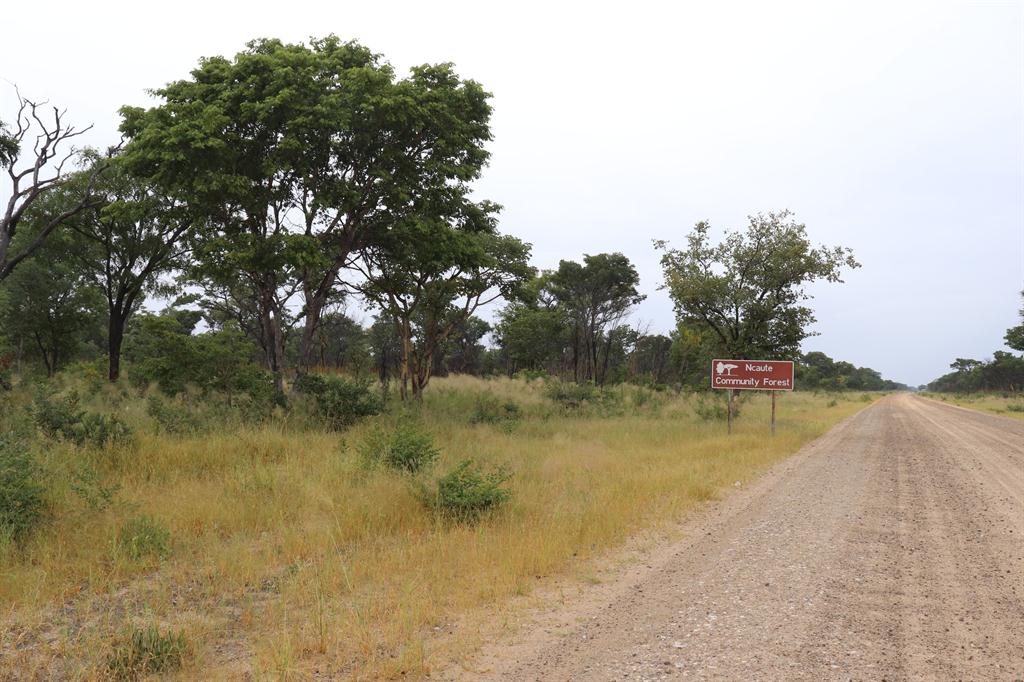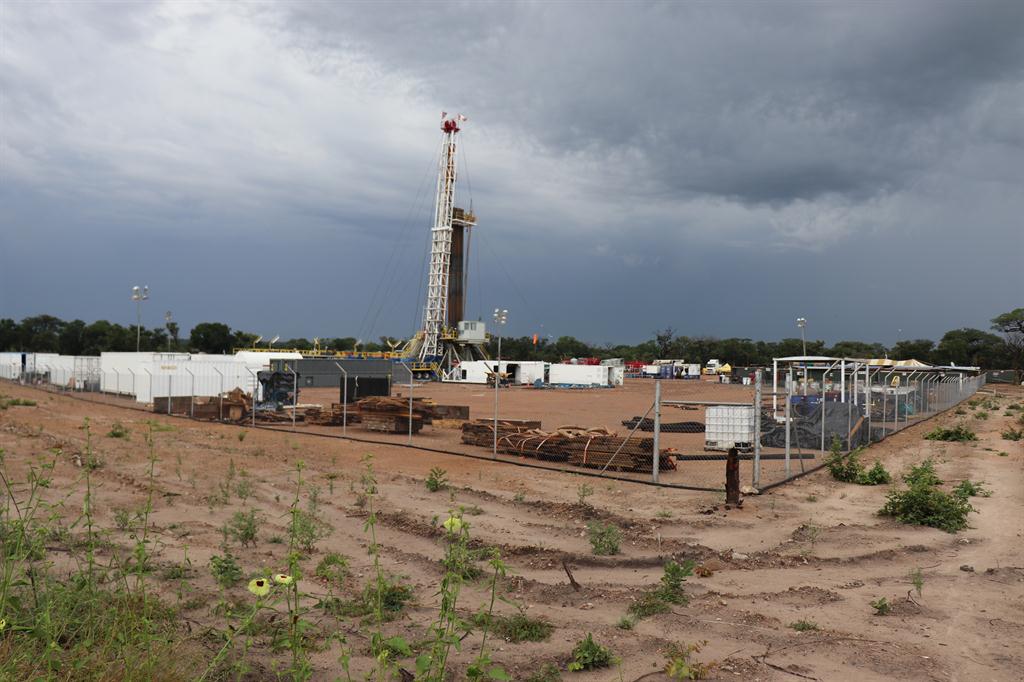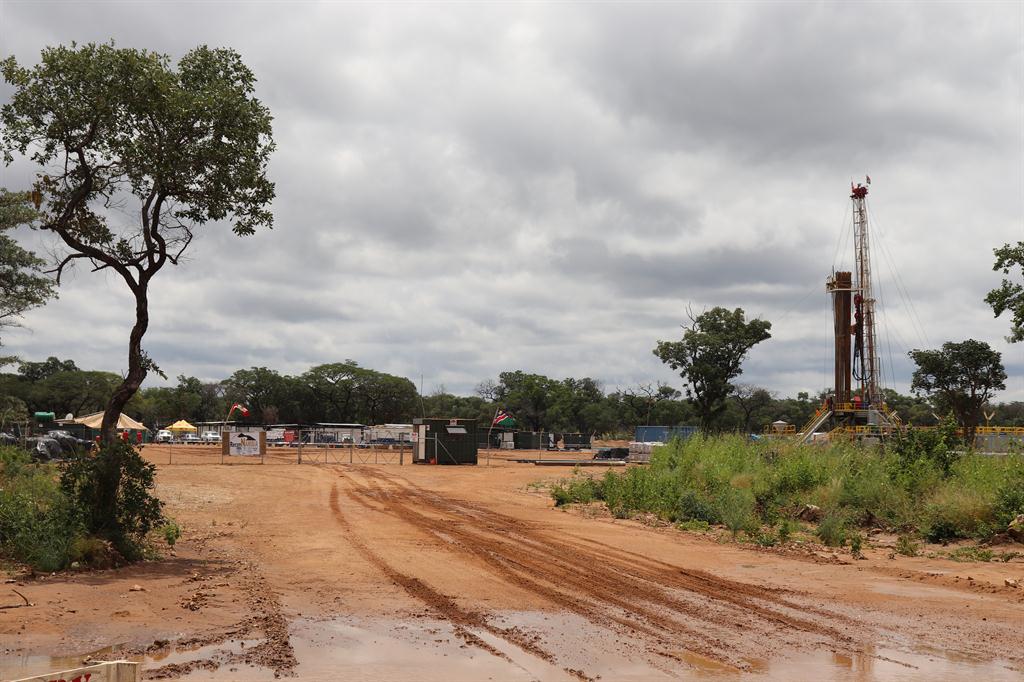He said, she said: Ambiguities and contradictions of Kavango oil hunt
A visit to the Kavango East evokes mixed feelings about ReconAfrica’s activities – with both critics and proponents airing their voices.
FRANK STEFFEN
KAWE
The debate rages on regarding oil exploration activities at Kawe village in Kavango East Region. Claims and counterclaims of how safe the project is refuse to die down.
Proponents of the activities, including the owners of the project, Canadian company Reconnaissance Energy Africa (ReconAfrica), and the Namibian government – which owns a 10% stake through state oil company Namcor, have poured cold water over fears that the project would involve hydraulic fracturing, also known as fracking.
But critics are relentless in their conviction that authorities have something to hide – and that the activities will cause lasting damage to the environment.
Namibia Media Holdings (NMH) dispatched a team of journalists to Kawe village to gather first-hand information about the project and engage communities in the area.
Mixed feelings
Speaking to the local community in Kavango East with the aid of a translator, the reaction to the search for gas and oil by ReconAfrica is mixed.
Some believe it represents the first step towards liberating the Kavango regions from the shackles of poverty. Others say the project will destroy the environment and the lives – both human and animal - that are dependent on it.
NMH spoke to Andreas Mawano, whose homestead was partly claimed by ReconAfrica to put up a drill rig at Kawe – literally a few hundred metres from the controversial logging and processing site of Chinese businessman and owner of New Force Logistics, Xuecheng Hou.
“I was not told that I would be affected by this development. My land was simply taken,” Mawano said.
He added that he has not been contacted again by Ncaute headman Johannes Kangoro, who allegedly told him previously to accept things as they are.
ReconAfrica spoke to his wife during his absence “a week or so ago” and told her that the oil company has taken note of media reports.
Its spokesperson Claire Preece was adamant that her company and its lawyers are due to meet Mawano to find solution. “His sons are convinced that people are confusing Mr Mawano by feeding him misinformation,” she said.
Mawano’s mahangu field was in part reutilised as a drilling site and he now has to live with the noise of the drilling operation all day.
The Kawe drilling site is very close to the ephemeral Omuramba Omatako, which leads from the Omatako Mountains in central Namibia through Omaheke up to Kavango, where it channels rain water towards the Okavango River.
In or out of conservancy?
Considering that the drilling operation takes place with the aid of highly poisonous chemicals, the chairman of the Kavango East and -West regional conservancy and community forestry association, Max Muyemburuko, is concerned.
“Contrary to what the environment minister Pohamba Shifeta has said [that the operation is environmentally safe], the second drilling operation at Mbambi lies in the middle of a communal forest, where elephants still roam.”
Preece disagreed, saying there‘s a technicality that would prove the drilling site will not be within any conservation area.
“We were initially concentrating on everything related to such a project, but according to our newest presentations, no unconventional production will take place. The drilling tower is not even made for fracking,” she said.
She explained that a conventional well is the easier and more profitable manner to extract oil. Strong environmental laws and petroleum regulations would ensure that Namibia would not be subjected to a risk. ReconAfrica makes use of a “water-based mud system, which is environmentally friendly”, she added.
The mud, she said, could be re-used and later used for agricultural purposes as a fertiliser.
“[Plastic] liners break and permeate. We have been testing the water and NamWater approves of it.”
Preece was, however, not prepared to outright reject fracking as a possibility. She simply said no “unconventional extraction would take place”.
Misinformation
She insists that people have been fed misinformation. While the environmental impact assessment required regulatory consultation, engagement is a different approach, which they are pursuing on a constant basis, she said.
“As people start to understand over time, we believe they will stop rejecting what we plan to do.”
To that end, ReconAfrica will continue to engage, educate and provide visual images in the local lingua, Preece said.
Muyemburuko said Kangoro is very practical about the possibility of being poisoned through polluted ground water. “He told me that he will rather die of poisoning than of hunger. He and his people go hungry every day and, therefore, he will grab at any opportunity that can possibly result in employment and some relief in terms of poverty.”
Employment opportunities
At Ncaute, this sentiment was confirmed by some residents, but others remained sceptical. “They told us to come and register to qualify as casual laborers, but nothing came of it. Of the 50 people they employ as cooks and cleaners, three are permanently employed, one being the son of the headman and the other two related to him. Nobody coming from this settlement was employed as yet,” one of the community leaders, who spoke on condition of anonymity, said.
Preece assured that ReconAfrica aimed to employ locals, but did so in an effort to try and be fair to everybody, while also adhering to a request by Namcor to make use of students and experts in Namibia, who would not necessarily only come from the immediate area.
An invitation from headwoman Ngila Ngonde to engage the community at Mbambi - a few kilometres from the new drilling site and roughly 12 kilometres from Kawe - dissolved into chaos last week when a local politician and school principal advised that no one should speak to the press as “government has already taken its decision”.
This was a typical argument raised by a number of the people, who feared that government would deny them development and employment opportunities if they express their dissatisfaction with the project.
Never consulted
At Shakambu village, people were adamant that they had never been approached or consulted.
Meanwhile, the chiefs who were consulted bemoaned the fact that there was no council to air their concerns to.
Chief Damian Hausiku and his son Hubert of Makandia seemed best informed of all of the people spoken to, but admitted that they too would have appreciated more information. Especially as they had “only heard of the project” during a food donation received from ReconAfrica in May 2020.
“We attended a meeting in February this year, where we were informed at the time you also had your meeting in Windhoek. We are neither for nor against the project.”
KAWE
The debate rages on regarding oil exploration activities at Kawe village in Kavango East Region. Claims and counterclaims of how safe the project is refuse to die down.
Proponents of the activities, including the owners of the project, Canadian company Reconnaissance Energy Africa (ReconAfrica), and the Namibian government – which owns a 10% stake through state oil company Namcor, have poured cold water over fears that the project would involve hydraulic fracturing, also known as fracking.
But critics are relentless in their conviction that authorities have something to hide – and that the activities will cause lasting damage to the environment.
Namibia Media Holdings (NMH) dispatched a team of journalists to Kawe village to gather first-hand information about the project and engage communities in the area.
Mixed feelings
Speaking to the local community in Kavango East with the aid of a translator, the reaction to the search for gas and oil by ReconAfrica is mixed.
Some believe it represents the first step towards liberating the Kavango regions from the shackles of poverty. Others say the project will destroy the environment and the lives – both human and animal - that are dependent on it.
NMH spoke to Andreas Mawano, whose homestead was partly claimed by ReconAfrica to put up a drill rig at Kawe – literally a few hundred metres from the controversial logging and processing site of Chinese businessman and owner of New Force Logistics, Xuecheng Hou.
“I was not told that I would be affected by this development. My land was simply taken,” Mawano said.
He added that he has not been contacted again by Ncaute headman Johannes Kangoro, who allegedly told him previously to accept things as they are.
ReconAfrica spoke to his wife during his absence “a week or so ago” and told her that the oil company has taken note of media reports.
Its spokesperson Claire Preece was adamant that her company and its lawyers are due to meet Mawano to find solution. “His sons are convinced that people are confusing Mr Mawano by feeding him misinformation,” she said.
Mawano’s mahangu field was in part reutilised as a drilling site and he now has to live with the noise of the drilling operation all day.
The Kawe drilling site is very close to the ephemeral Omuramba Omatako, which leads from the Omatako Mountains in central Namibia through Omaheke up to Kavango, where it channels rain water towards the Okavango River.
In or out of conservancy?
Considering that the drilling operation takes place with the aid of highly poisonous chemicals, the chairman of the Kavango East and -West regional conservancy and community forestry association, Max Muyemburuko, is concerned.
“Contrary to what the environment minister Pohamba Shifeta has said [that the operation is environmentally safe], the second drilling operation at Mbambi lies in the middle of a communal forest, where elephants still roam.”
Preece disagreed, saying there‘s a technicality that would prove the drilling site will not be within any conservation area.
“We were initially concentrating on everything related to such a project, but according to our newest presentations, no unconventional production will take place. The drilling tower is not even made for fracking,” she said.
She explained that a conventional well is the easier and more profitable manner to extract oil. Strong environmental laws and petroleum regulations would ensure that Namibia would not be subjected to a risk. ReconAfrica makes use of a “water-based mud system, which is environmentally friendly”, she added.
The mud, she said, could be re-used and later used for agricultural purposes as a fertiliser.
“[Plastic] liners break and permeate. We have been testing the water and NamWater approves of it.”
Preece was, however, not prepared to outright reject fracking as a possibility. She simply said no “unconventional extraction would take place”.
Misinformation
She insists that people have been fed misinformation. While the environmental impact assessment required regulatory consultation, engagement is a different approach, which they are pursuing on a constant basis, she said.
“As people start to understand over time, we believe they will stop rejecting what we plan to do.”
To that end, ReconAfrica will continue to engage, educate and provide visual images in the local lingua, Preece said.
Muyemburuko said Kangoro is very practical about the possibility of being poisoned through polluted ground water. “He told me that he will rather die of poisoning than of hunger. He and his people go hungry every day and, therefore, he will grab at any opportunity that can possibly result in employment and some relief in terms of poverty.”
Employment opportunities
At Ncaute, this sentiment was confirmed by some residents, but others remained sceptical. “They told us to come and register to qualify as casual laborers, but nothing came of it. Of the 50 people they employ as cooks and cleaners, three are permanently employed, one being the son of the headman and the other two related to him. Nobody coming from this settlement was employed as yet,” one of the community leaders, who spoke on condition of anonymity, said.
Preece assured that ReconAfrica aimed to employ locals, but did so in an effort to try and be fair to everybody, while also adhering to a request by Namcor to make use of students and experts in Namibia, who would not necessarily only come from the immediate area.
An invitation from headwoman Ngila Ngonde to engage the community at Mbambi - a few kilometres from the new drilling site and roughly 12 kilometres from Kawe - dissolved into chaos last week when a local politician and school principal advised that no one should speak to the press as “government has already taken its decision”.
This was a typical argument raised by a number of the people, who feared that government would deny them development and employment opportunities if they express their dissatisfaction with the project.
Never consulted
At Shakambu village, people were adamant that they had never been approached or consulted.
Meanwhile, the chiefs who were consulted bemoaned the fact that there was no council to air their concerns to.
Chief Damian Hausiku and his son Hubert of Makandia seemed best informed of all of the people spoken to, but admitted that they too would have appreciated more information. Especially as they had “only heard of the project” during a food donation received from ReconAfrica in May 2020.
“We attended a meeting in February this year, where we were informed at the time you also had your meeting in Windhoek. We are neither for nor against the project.”








Comments
Namibian Sun
No comments have been left on this article